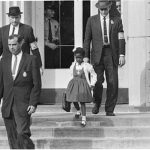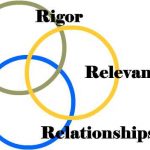
Time To Transform Public Schools: Part 2 – A Vision For a Great School
The stage has been set in Part 1 of the Time to Transform Public Schools series. If you haven’t read it, take a moment to do so, then come right back to this spot.
In this part I’m setting our sights on what a great school looks like. It has no special theme (like STEM, Arts, etc.) and it’s not a magnet or special school. It’s just how we at TAF think all schools should be. How did we come to this vision of a school? Researching what’s working across the country, talking to lots of great educators and of course our own experience starting and co-managing our school TAF Academy.
The important thing to remember when you read this description of a great school, is that it doesn’t happen overnight and it takes a lot of work to get all the pieces working together and keep them working. There is no notion of arriving at the goal, then you’re done. It continues to evolve because we evolve as human beings. The world of one cohort of kids looks completely different than another. The relationships between adults change and educators are discovering new ways to be the best professional they can be.
Now take a moment to…
Imagine a great school—a school that supports all students by providing them an individualized roadmap to their personal goals and ambitions.
A great school wants students to succeed—not to meet standards or teacher expectations, not to compete in the workforce and fuel the economy, not for their own personal gain and prestige—but to succeed in the service of a greater good by creating a world that will be better for their contributions. Thus, this school will challenge students with the issues of the 21st century—from epidemics of disease, world hunger, and geopolitics to world trade, artificial intelligence, and ecological sustainability.
We know that regardless of background, most students envision themselves being successful. Acknowledging this aspiration to improve one’s own condition while bringing forward students’ awareness of the connectedness of their wellbeing to that of all others on the planet, should be the context for all the work at this school.
A great school provides its students the tools with which to meet these challenges so they can analyze, communicate, synthesize, and evaluate their work and the world around them. There they grapple with their personal, communal, and cultural roles in the global systems that surround them.
We know that students want real, meaningful work to do. Students will realize new worlds of science, art, language, and history as they learn, teach, and inspire. Gone are the days of outdated textbooks, recycled quizzes, and short, memorized answers. All students publish, recite, translate, encode, author, manage, engineer, invent, construct, and govern. True performance-based assessment informs students of their progress on the work of their hands and minds, their efforts to make positive change, and their impact on the world.
The adults in a great school model their beliefs in every student’s abilities, collaborate to create the best opportunity for student success, continually improve their practice through training and self-reflection, and model a love for learning. Every adult assumes the role of instructional leader, pushing to ensure that the daily work of school is at intellectually high levels.
We know that teachers provide multiple rich learning experiences for their students. They use inquiry as a lens for equity and explore diverse forms of knowledge and experience. They make sure students see themselves, their cultures, and their interests in the work they do. Teachers participate in groups of their peers where they put their work and their students’ work on the table for discussion to open up their practice, help each other, and produce better work. They hold each other accountable to talk less and encourage their students to talk more thus promoting student discourse as a civic responsibility skill whereby they learn to engage in civil conversations about important ideas.
In particular, the principal is the steward of this great school’s vision, ensuring a laser focus on the mission and vision of the school as it pursues its everyday goals. The principal creates maximum opportunities for teachers to develop their craft as well as to collaborate with adults from other professions to create authentic learning experiences. The principal fosters an environment that devises ways for adults and students to share their passions and celebrate their personal learning journeys.
This great school is surrounded by a culture that invites and connects with all invested community members, especially students’ families. It provides a hospitable environment that respects the needs of its participants by honoring their culture and their time. To attend this school is to join a family.
Those of you who know me, know I’m not going to put up a vision like this without some kind of direction on getting there. Over the next few months (about once every two weeks) I’m going to lay out what it takes to get to this type of school. About 90% of what you’ll see from me comes from the practical experience of myself, my colleagues and other educators who are invested in this work. The rest comes from research.
Thanks for taking the time to read this! I’m interested in your comments, so please do.




